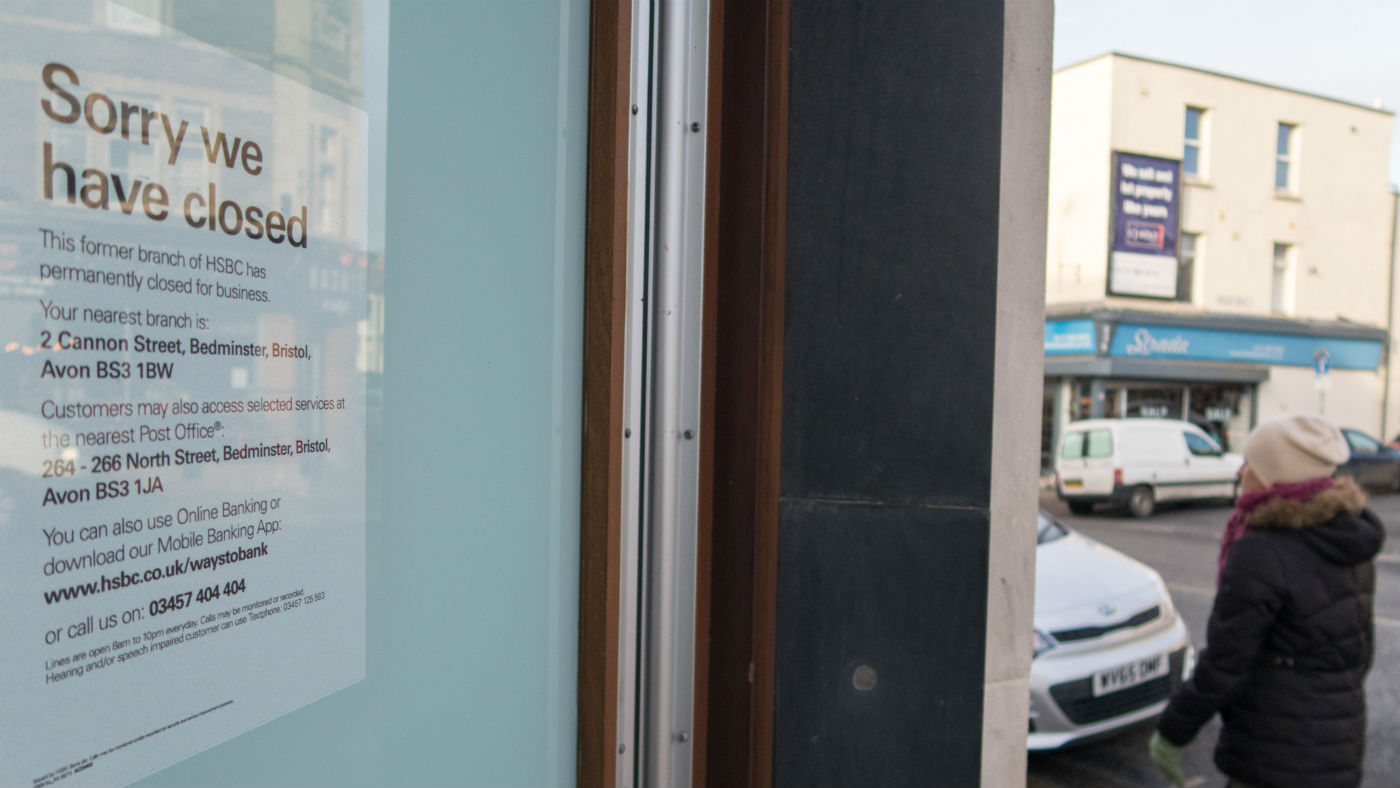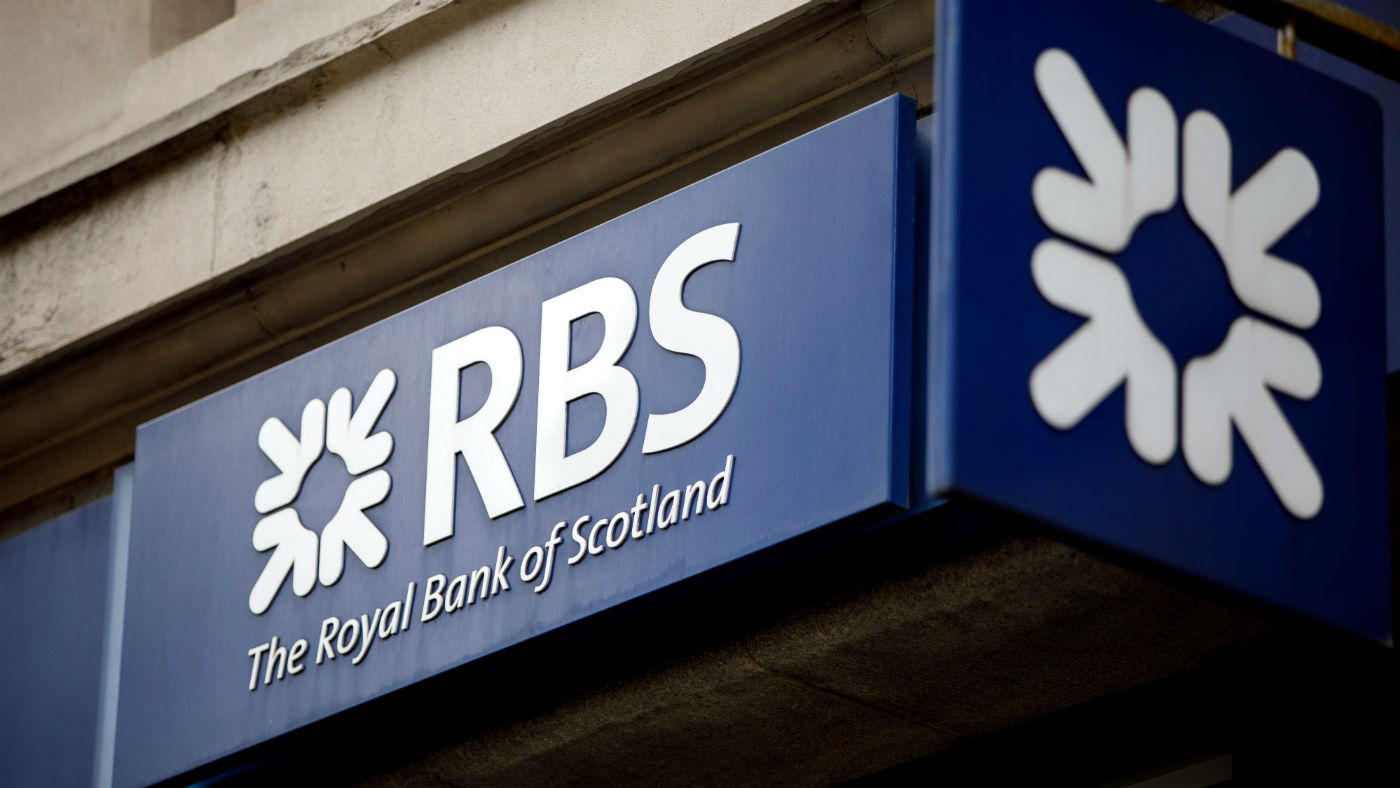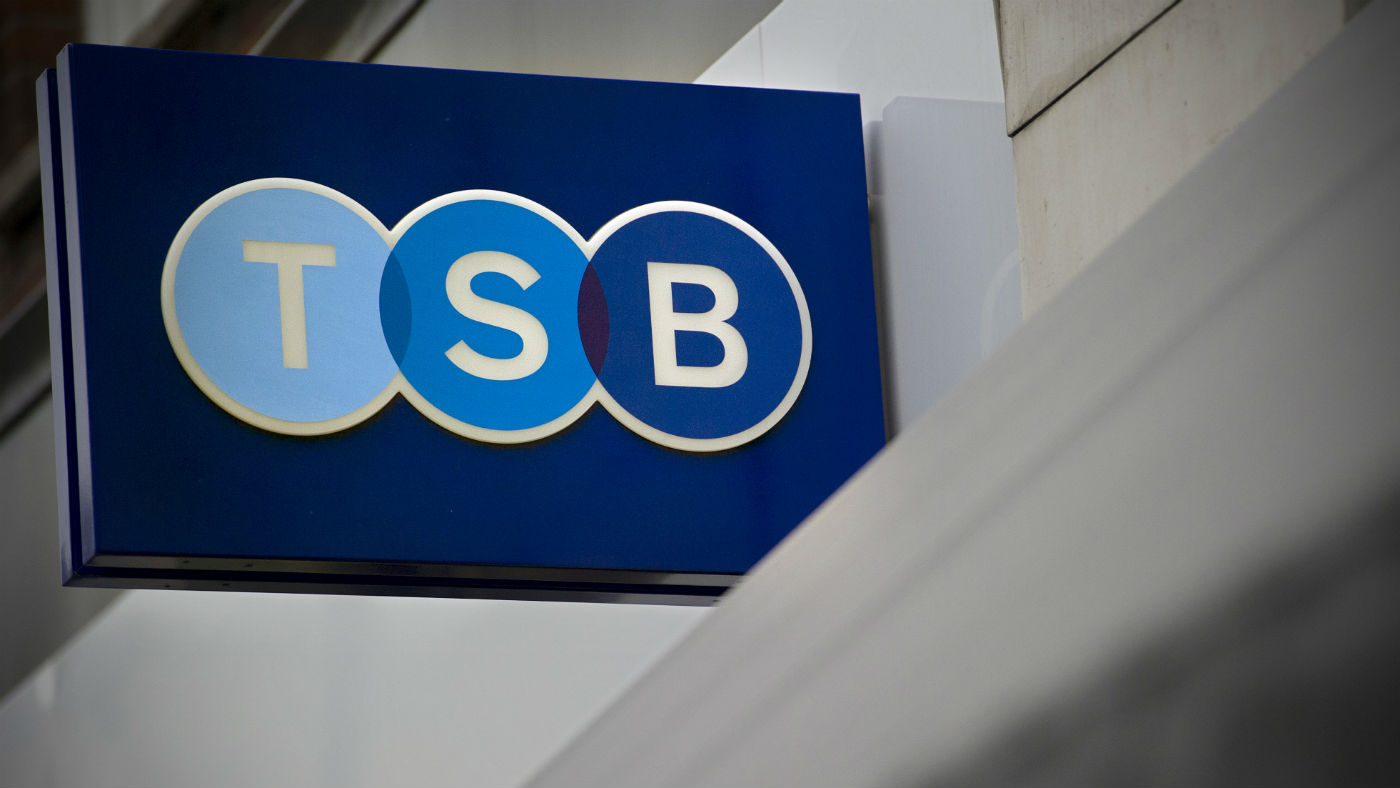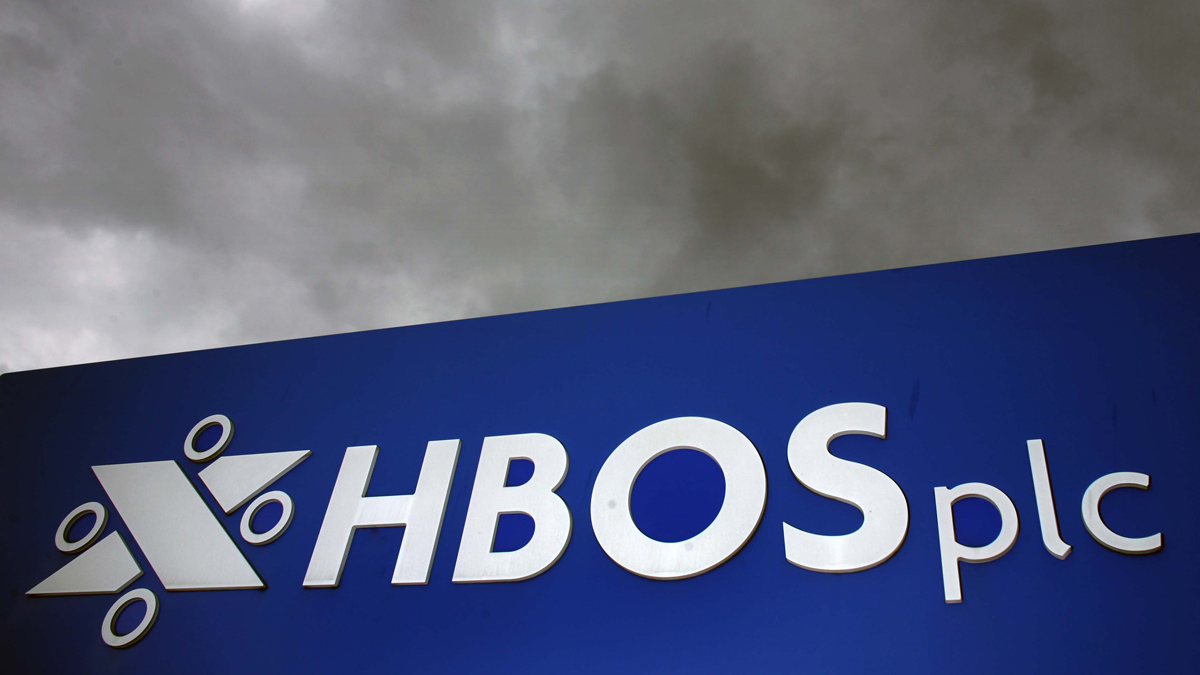Lloyds' boom-era bosses sue bank for bonuses
Eric Daniels and Truett Tate claim they should have received a full payout in 2012

A free daily email with the biggest news stories of the day – and the best features from TheWeek.com
You are now subscribed
Your newsletter sign-up was successful
Lloyds pushes on with pre-privatisation cuts
04 February
Lloyds Banking Group is to close 29 more branches with the loss of 1,755 jobs as it presses ahead with a pre-privatisation cost-reduction plan set out two years ago.
Chief executive Antonio Horta Osorio set out plans in 2014 to shed as many as 9,000 jobs to prepare the business to compete in an increasingly digital market, says The Guardian. That would eventually mean the closure of 200 branches. It has confirmed a number of these cuts already, including, most recently, 1,000 jobs in November.
The Week
Escape your echo chamber. Get the facts behind the news, plus analysis from multiple perspectives.

Sign up for The Week's Free Newsletters
From our morning news briefing to a weekly Good News Newsletter, get the best of The Week delivered directly to your inbox.
From our morning news briefing to a weekly Good News Newsletter, get the best of The Week delivered directly to your inbox.
Now it will close 29 branches across its brands, including 19 at Lloyds, seven at Bank of Scotland and three at Halifax, in June, with the loss of 1,755 roles, concentrated in particular among assistant managers. There are 170 new jobs being created in retail and commercial banking, to leave a net drop of 1,585.
The trade union Accord said that 60 per cent of the overall role reductions will now have been carried out and that an agreement with the bank means redundancies are exclusively on a voluntary basis.
Lloyds is attempting to streamline its business as it prepares to return fully to the private sector. Since the original cuts plans were outlined, the government has reduced its stake in the group from more than 40 per cent to less than 10 per cent, with a deadline of June being set to complete the task of offloading the taxpayer's interest.
That selloff is now officially on hold, however, as Lloyds' share price has slumped amid wider market turmoil and specific concerns over charges that could hit profits. This week, shares fell as low as 60p for the first time in nearly three years and even after a 2.8 per cent rise to 62.4p this morning, the stock remains well below the government's bailout break-even price of 73.6p.
A free daily email with the biggest news stories of the day – and the best features from TheWeek.com
Existing investors and those looking to participate in a promised discount offer to retail investors will be hoping for strong full-year results this month to improve fortunes. But with an expected additional £2bn provision related to payment protection insurance mis-selling, this might prove to be optimistic.
Lloyds dividend doubt as big PPI bill expected
02 February
Lloyds Banking Group may be forced to increase its allocation for compensation claims relating to payment protection insurance mis-selling by another £2bn, putting in peril its hopes of making a "special" dividend payout.
The prediction comes from analysts at Jefferies, Shore Capital and Barclays, who had previously estimated a provision of £800m for the final three months of 2015. The Daily Telegraph says they've upped the forecast in the wake of Royal Bank of Scotland increasing its own bill by £500m when it announced results last week, while Santander has also added to its provision by £450m.
Lloyds is the most exposed to the PPI scandal and has already set aside £13.9bn, almost half of the total of a little more than £28bn. More and more costs relating to past wrongdoing – it is also facing a steep bill in the US related to boom-era mortgage bonds – are hurting sentiment on future earnings growth and could hit the bank's ability to make distributions to shareholders.
Joseph Dickerson at Jefferies said there would be "limited opportunity" for a special dividend at Lloyds for 2015, which had been the subject of speculation and could be critical if its shares are to break out of their current slump. Barclays' Rohith Chandra-Rajan said the PPI bill "could hamper near-term prospects for capital distribution", but he still cites "attractive" prospects and maintains a "buy" rating.
Lloyds shares were down two per cent to below 63p this morning, the lowest it has been since the spring of 2013.
One thing that will help Lloyds is a recent court ruling in its favour over hundreds of millions of pounds worth of bailout bonds, which were paying investors as much as 16 per cent interest but which it had sought to cancel after they were discounted in capital "stress tests" by regulators. The Court of Appeal in December upheld a verdict that it can redeem the notes at their face value.
The Financial Times has reported that Lloyds will begin to redeem the bonds on 9 February, with investors getting a slight premium in cash or a face-value redemption later if they hold on. It will save around £900m in interest payments over the next four and a half years.
Investors are not taking the move lying down. Many remain angry at what they see as a flagrant breach of contract that will deprive them of vital income and a final appeal to the Supreme Court is being planned that could still turn the case around. If that happens, the bank says it will compensate investors for losses incurred by the cancellation.
Lloyds retail share sale postponed 'until markets have calmed'
28 January
George Osborne has confirmed what many analysts have been saying for weeks: that the £2bn discounted retail share sale of Lloyds Banking Group will be delayed.
Sky News economics editor Ed Conway says the Chancellor told him this morning that he would push back the offer, blaming "market turbulence".
He said: "I want to create a share-owning democracy. It's also my responsibility to ensure economic responsibility so with these turbulent financial markets now is not the right time to have that sale. We will sell Lloyds to the British people but we will do so when the time is right."
The BBC's Kamal Ahmed also reports Osborne confirming the delay, adding: "He would not give the go-ahead until the markets had calmed."
Lloyds has been in a prolonged slump over recent months, amid a rout of banking stocks that in part reflects wider bearish sentiment but also fears that fresh penalties for past wrongdoing will eat into lenders' profits. Royal Bank of Scotland yesterday announced billions in charges that will push it to a 2015 loss – and Lloyds is the most exposed to the payment protection insurance scandal.
The government acquired shares in Lloyds bank in the 2008 bailout at an average price of 73.6p. They have been mostly below this level since October and this morning, were 1.8 per cent lower to below 64p. This is just above the 63.1p the stock touched yesterday, the lowest level since May 2013.
How long the government will delay a share sale that was an election pledge will depend on whether prices rally in the wake of annual results next month – Osborne promised not to offload the bank at a loss. If the results show an increase in earnings and perhaps an increase in investor dividends, then the bank could rally strongly.
Some have predicted the government might proceed with the retail offer in May or early summer. If it goes later, a June deadline for full privatisation of the bank is likely to be missed.
Lloyds share price dives after double whammy
25 January
Lloyds Banking Group shares fell steeply again this morning, as a report indicated it was due to face another major mis-selling bill and an analyst dropped its price target.
Bosses of Britain's five largest banks are to "announce huge new provisions in their annual results over the next few weeks" to compensate customers mis-sold payment protection insurance, says Sky News. "Barclays, HSBC, Lloyds Banking Group, Royal Bank of Scotland and Santander UK [are] likely to announce a combined new bill of at least £5bn… on top of around £27bn they have already absorbed," it says.
It adds that taxpayer-backed Lloyds, which is the most exposed to the scandal and has so far been responsible for more than half of the total redress bill, is likely to bear the brunt. Its results for February could see the lender set aside another £2.5bn for payments, adding to the £13.9bn it has already allocated or paid out.
In as much as costs for past wrongdoing are frequently cited as one of the main risks to buying into the shares of the major banking groups - and especially Lloyds - this will be seen as extremely negative for the stock. Lloyds was down 3.2 per cent to below 65p at around 10.20am this morning.
But it is not just a potential PPI bill putting off investors. Lloyds has also had its shares downgraded by analysts at JP Morgan, who, The Guardian says, have lowered their headline price target from 98p to 90p. The analysts reduced their "forecast for Lloyds' net interest margin, saying it could decline further in 2016 in the absence of interest rate rises".
This price target, however, which is in line with an average of brokers' estimates, remains well in excess of the current price and well ahead of the Government's 73.6p break-even price. JP Morgan has also maintained an overall positive "overweight" rating, saying Lloyds is the best positioned of UK banks.
Investor sentiment remains incompatible with prices at these levels. Some will take the wide disparity as a sign that the bank is undervalued, though, and argue that positive annual results next month, coupled with any increase in dividends, could spark a significant recovery.
Lloyds share sale 'up in the air' as bank hits three-year low
22 January
Lloyds Banking Group shares closed at their lowest level for more than three years yesterday, leaving Chancellor George Osborne's plan to return the bank to the private sector "up in the air".
The taxpayer-backed lender finished yesterday at 64p a share, down around 17 per cent compared to the end of October, before the prolonged slump set in. This is far less than the 73.6p at which the then Labour government acquired shares in the 2008 bailout – and below which Osborne has pledged not to offload its interest – and a long way from the average analyst target price of above 90p.
The drop comes amid a period of increasing gloom over the global economy and concern over fresh charges related to past wrongdoing. However, the rout has also affected the wider banking sector and, in fact, Lloyds has not endured the worst fall of the so-called "big four", with Barclays and Royal Bank of Scotland down 27 and 21 per cent over the past three months.
Retail investors were originally to be offered discounted shares in Lloyds, in which the government now holds a residual nine per cent stake, in March. Now insiders have said it could be delayed by "several months", notes The Times, and an eventual final exit could overshoot the revised June deadline.
There is even speculation that Treasury officials may be considering changing the intended mix of buyers for its shares to complete the sell-off, the proceeds of which are earmarked to reduce the national debt. This reflects the fact the government may be able to sell shares at a loss to retail investors without losing as much face.
"It would be very difficult to sell to institutions at below 74p, as every other sale has been above that. The Chancellor would heavily weight the sale to retail investors and could say the government is putting the shares in the hands of private investors, so the threshold price is not that important," said one source. It is thought unlikely institutions would be completely cut out.
The government will also be hoping that the full-year results for Lloyds, due next month, show strong earnings growth and a boost to investor dividends, which could prompt a rally to put its plans back on track.
-
 6 of the world’s most accessible destinations
6 of the world’s most accessible destinationsThe Week Recommends Experience all of Berlin, Singapore and Sydney
-
 How the FCC’s ‘equal time’ rule works
How the FCC’s ‘equal time’ rule worksIn the Spotlight The law is at the heart of the Colbert-CBS conflict
-
 What is the endgame in the DHS shutdown?
What is the endgame in the DHS shutdown?Today’s Big Question Democrats want to rein in ICE’s immigration crackdown
-
 Could ‘banking hubs’ solve problem of branch closures?
Could ‘banking hubs’ solve problem of branch closures?Speed Read MPs fear large sections of society could face ‘financial exclusion’
-
 RBS to cut 162 branches and 792 jobs
RBS to cut 162 branches and 792 jobsSpeed Read Move comes days after taxpayer-owned bank announced 206% rise in profits
-
 TSB crisis enters fourth day
TSB crisis enters fourth daySpeed Read Bank boss ‘sorry’ for IT chaos that has left customers unable to access accounts or make payments
-
 Lloyds shareholders in £350m claim win disclosure battle
Lloyds shareholders in £350m claim win disclosure battleIn Depth Judge rejects bank's argument that advice ahead of ill-fated takeover of Hbos is privileged